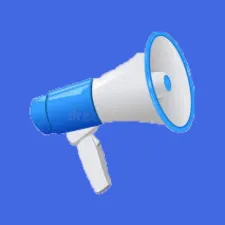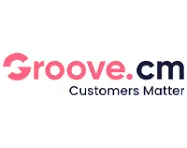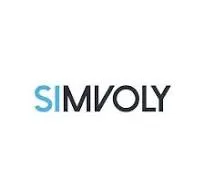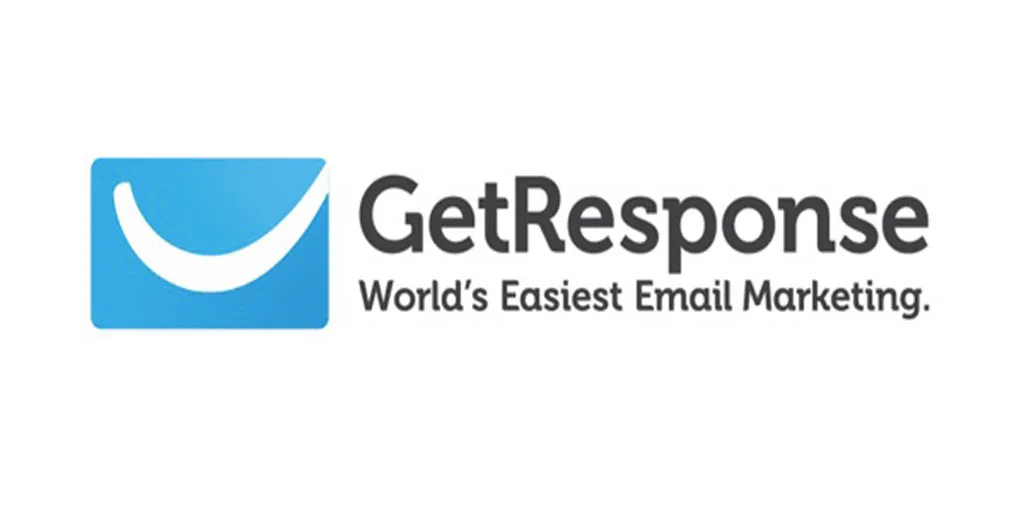Website vs Funnel: The Real Difference
In today’s fast-paced digital world, every entrepreneur faces a crucial decision: Website vs Funnel. This choice is more than just picking a platform. It’s about choosing how you connect with your customers, guide their journey, and drive growth. The Website vs Funnel debate is everywhere because the stakes are high. Should you invest in a traditional website or build powerful sales funnels that lead visitors straight to action? Let’s explore why this decision could make or break your business—and how you can choose the right path for your goals.
Traditional Websites Are Static, While Funnels Guide Action
When you look at Website vs Funnel, the first thing you notice is how each platform interacts with your audience. Traditional websites are like digital brochures. They present information, showcase your brand, and often list your services or products. But here’s the catch: they don’t give visitors clear direction.
Think about the last time you landed on a business website. Maybe you scrolled through the homepage, glanced at the About page, and clicked away without doing anything else. That’s the challenge with static sites. They rely on visitors to figure out what matters and which step to take next.
Funnels, on the other hand, are designed with purpose. Instead of hoping visitors will take action, funnels guide them step by step. Each page has a single, focused goal. For example, a funnel might start with a free offer, move to an upsell, and finish with a thank-you page. Every step encourages your visitor to keep moving forward.
Because funnels eliminate distractions, they solve one of the biggest problems entrepreneurs face: lost opportunities. In the Website vs Funnel conversation, this is a game-changer. Funnels don’t just show information—they drive action.
Funnels Simplify the Customer Journey and Boost Conversions
Another key advantage in the Website vs Funnel debate is how funnels turn complex journeys into simple, clear paths. Traditional websites can confuse visitors with too many choices. Menus, links, and endless pages make it easy for someone to get lost or distracted.
A funnel keeps things simple. When someone enters your funnel, they see only what’s relevant at each step. There are no sidebars to distract, no unrelated links to click. Instead, you guide them toward a single outcome, such as making a purchase, registering for a webinar, or signing up for your newsletter.
This simplicity makes a huge difference in conversion rates. It’s easy to say “yes” when you’re not overwhelmed. Funnels help you build trust, answer objections, and make the next step obvious. In fact, most entrepreneurs see their conversion rates skyrocket after switching from a website to a funnel.
Let’s consider an example. Imagine you’re selling an online course. On your website, visitors might browse your blog, read your bio, and leave without enrolling. In a funnel, they see a focused message about your course, watch a short video, read testimonials, and then get a clear call to action: enroll now. At each step, you support their decision and remove obstacles.
So, in Website vs Funnel, if your goal is to boost conversions, the answer is clear. Funnels turn interest into action.
Websites Focus on Information, but Funnels Drive Results
Many entrepreneurs start with a website because it feels like the right thing to do. You want a place where people can learn about your business, see your products, and maybe read your blog. But here’s the problem: information doesn’t always lead to results.
Let’s dig into this. When visitors land on your website, they often come for information. Maybe they’re curious, or maybe they’re comparing options. But unless you give them a clear reason to act, they’ll probably leave as quickly as they arrived.
Funnels are different. Every funnel is built with a specific outcome in mind. Maybe you want people to schedule a call, buy a product, or download a free guide. The entire funnel supports that goal. Each page uses persuasive copy, social proof, and urgency to move visitors from interest to commitment.
In the Website vs Funnel discussion, the difference is huge. Websites are great for educating and establishing credibility. Funnels are better for generating leads and sales.
Consider this: you could spend months perfecting your website. But if it doesn’t convert, what’s the point? Funnels help you focus on what matters most—results.
The Data-Driven Advantage of Funnels
One of the most exciting reasons to choose a funnel in the Website vs Funnel debate is the power of data. Funnels make it easy to track every step your visitors take. You can see who clicks, who opts in, who buys, and where people drop off.
This data is pure gold. It lets you test new headlines, try different offers, and improve your results over time. You’re never guessing. Every decision is backed by real numbers.
Websites have analytics too, but they’re often harder to interpret. You might know how many people visit your homepage or blog, but tying that data to actual sales is tricky. Funnels make it clear. If you see visitors dropping off at a certain page, you know exactly where to make changes.
The Website vs Funnel decision becomes easier when you realize how much control and insight funnels offer. You’re not just building a prettier website—you’re building a system that gets better with every visitor.
As a result, entrepreneurs who embrace funnels can adapt quickly. If an offer isn’t working, you can test something new. If people aren’t converting, you can tweak your message. The feedback is instant, and the learning never stops.
When (If Ever) a Website Still Makes Sense
You might wonder if there’s still a place for traditional websites in the Website vs Funnel conversation. The answer is yes, but with some important notes.
Websites are still valuable for building brand authority. They’re perfect for sharing your story, publishing in-depth articles, or supporting existing customers with FAQs and resources. If your business offers multiple services or has a large portfolio, a website can help visitors learn more about what you do.
However, if your main goal is to generate leads, drive sales, or grow fast, a funnel should be your top priority. Many successful businesses use both: a website for credibility, and funnels for marketing campaigns.
The best strategy is to start with your goals. If you want to build long-term relationships and offer lots of information, a website works. If you want fast results and measurable growth, choose a funnel.
In the end, Website vs Funnel isn’t always an either-or decision. The smartest entrepreneurs know how to use both, each for its strengths.
The Modern Entrepreneur’s Dilemma: Why the Debate Matters Now
It’s never been more important to think about Website vs Funnel. The digital world moves fast. Consumer expectations change every year. What worked five years ago might be outdated now.
Right now, thousands of entrepreneurs are struggling to turn website traffic into sales. They see visitors come and go, but few take action. That’s why this debate matters. Funnels offer a smarter, more focused way to turn interest into income.
If you want to stay ahead, you can’t afford to ignore these changes. Today’s market rewards those who take decisive action. The Website vs Funnel conversation is about more than technology—it’s about your future success.
Real-World Success Stories: Funnels in Action
Still not convinced? Let’s look at how modern entrepreneurs have transformed their businesses with funnels.
Case Study 1: The Online Coach
Sarah, a business coach, started with a beautiful website. She blogged every week, shared testimonials, and listed her services. But leads were slow. She switched to a simple funnel: free ebook → strategy call → premium coaching program. Within three months, her bookings doubled. The funnel guided visitors from curiosity to commitment.
Case Study 2: The E-Commerce Store
Tom ran an online shop with dozens of products. His website was busy, and visitors often left without buying. He created a funnel: Facebook ad → landing page → limited-time offer → checkout. By focusing on a single product and clear messaging, his conversion rate jumped from 2% to 9%. The Website vs Funnel decision was a turning point.
Case Study 3: The Digital Marketer
Lisa built websites for clients but noticed they wanted more leads, not just more pages. She started offering funnels and saw her own agency’s revenue grow. Funnels let her track results, show clients real ROI, and scale her business faster.
These stories show what’s possible when you move beyond traditional websites and embrace funnels. The Website vs Funnel debate isn’t just theory—it’s a practical choice with real results.
How to Get Started With Funnels (Without Losing Your Website)
If you’re sold on the benefits but worried about losing your website, don’t panic. You don’t have to choose one over the other immediately. In fact, the best approach is often to add a funnel to your existing setup.
Start with a simple funnel for your main offer. Test it with your current audience. Use the data to improve. Over time, you can build more funnels for different products or services.
Meanwhile, keep your website for branding and support. Use it as a hub where people can learn about you and access resources. But direct most of your marketing traffic into your funnels, where you can guide the journey and maximize conversions.
This hybrid approach lets you get the best of both worlds. You can build authority with your website and drive results with your funnels.
Building Your First Funnel: A Step-by-Step Guide
Ready to try a funnel for yourself? Here’s a simple process to get started:
- Pick a Single Goal: Decide what you want to achieve—more sales, more calls, more leads.
- Create a Simple Offer: This could be a free guide, a discount, or a webinar.
- Build the Funnel: Use a tool like ClickFunnels, Leadpages, or Kartra. Start with a landing page, then an upsell or thank-you page.
- Write Clear Copy: Focus on benefits, use social proof, and make calls to action obvious.
- Test and Improve: Track your results. Where do people drop off? What can you tweak?
- Drive Traffic: Use ads, email, or social media to send people to your funnel.
By following these steps, you’ll see firsthand how powerful funnels can be. The Website vs Funnel question will become clearer with every new lead and sale.
Common Myths About Website vs Funnel
There’s a lot of confusion around Website vs Funnel. Let’s clear up some common myths:
- Myth 1: “Funnels are just for techies.”
- False! Modern funnel builders are easy to use. If you can drag and drop, you can build a funnel.
- Myth 2: “Websites are better for SEO.”
- While websites can rank for more keywords, funnels can be optimized for high-converting search terms. Plus, you can use both together.
- Myth 3: “Funnels are pushy or salesy.”
- Not at all. A good funnel offers value at every step and builds trust, just like a good website.
- Myth 4: “You have to choose one or the other.”
- Many successful entrepreneurs use both. Funnels drive results, websites build credibility.
Understanding these myths helps you make a smarter choice.
Frequently Asked Questions (FAQs) About Website vs Funnel
Q1: What is the main difference between a website and a funnel?
A: In Website vs Funnel, the main difference is that a website is like a digital brochure, while a funnel is a step-by-step process that guides visitors toward a specific action.
Q2: Can I use both a website and a funnel for my business?
A: Yes! Many entrepreneurs use both. Your website builds trust, and your funnel drives conversions.
Q3: Are funnels hard to build?
A: Not anymore. Funnel builders make the process easy, even if you’re not tech-savvy.
Q4: Which is better for SEO—website or funnel?
A: Websites are better for broad SEO, but funnels can target high-intent keywords. The best results come from using both together.
Q5: How do I know if I need a funnel?
A: If you want more leads or sales, a funnel can help. Start small and test the results.
Q6: Can a funnel replace my website?
A: For some businesses, yes. But many find the best results by using both.
Q7: What’s the first step to switching from website to funnel?
A: Start by identifying your main offer. Build a simple funnel around it and direct your marketing traffic there.
Q8: Do funnels work for every industry?
A: Almost every industry can benefit from funnels. They’re especially powerful for coaching, e-commerce, consulting, and digital products.
Q9: Do I lose my existing website traffic if I switch to a funnel?
A: No. You can keep your website as a resource and use funnels for focused campaigns.
Q10: Is it expensive to build a funnel?
A: Funnel tools range in price, but you can start small and scale as you grow.
Conclusion: Make Website vs Funnel Work for You
The world of business is changing fast. The Website vs Funnel debate matters now more than ever. Traditional websites offer information and credibility, but funnels deliver results. If you want to grow, you need a platform that guides your visitors, tracks your data, and adapts to your goals.
The smartest entrepreneurs don’t just build websites. They build systems that drive action. Funnels are proven to boost conversions, simplify the customer journey, and help you learn what works.
So, what’s next for you? Take a closer look at your business goals. If you want more sales, leads, or growth, start building your first funnel today. Keep your website for support and credibility, but let your funnel do the heavy lifting.
Remember, Website vs Funnel isn’t a battle—it’s an opportunity. Use both together, and you’ll set yourself up for long-term success.
Modern entrepreneurs don’t need digital brochures—they need dynamic, conversion-focused journeys that actually move the needle.
Now is the perfect time to rethink your strategy. Don’t let another quarter slip by with disappointing results. Embrace funnels, make the most of your website, and watch your business reach new heights.




